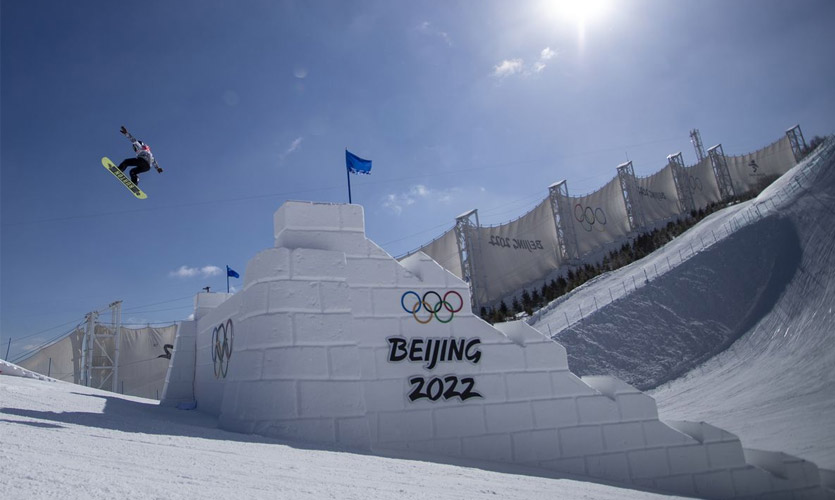It has been a long time since China last hosted the Olympics in 2008, when the international community lauded the event as a sign of the nation’s rejuvenation and China’s entry into a glorious era. Winter Olympics 2022 is taking place in Beijing at a time when the Chinese government has tightened political influence and China’s human rights transgressions have been sparking worldwide outrage. It seems that the Chinese government aims to garner new friends while hosting the games amid escalating political tensions.
China has previously attempted to utilise the Olympic games to persuade other nations that it has a strong governance system and deserves a significant role in the world order. It had deployed vast quantities of effort and wealth in 2008 to present the rest of the world with an open and kind face with great expectations that this plan would pay off. However, according to the Center for Strategic and International studies, the event had little impact on foreign approval of China’s leadership and economy, revealing the limits of China’s soft power.
The 2022 Winter Olympics provide a platform not only to reinforce China’s authoritarian governance system, but also to establish its supremacy to the globe and the Chinese people in the backdrop of the COVID-19 pandemic, human rights abuses, and sexual assault charges in the Chinese sports world. China could also exploit the event to bolster its position as a global economic and technical powerhouse.
China’s View on the Russia-Ukraine Dispute
The threat of human rights abuses in China thwarts Beijing’s Olympic bid in 2022. In the months leading up to the winter games, over 180 human rights organisations called on governments to boycott the Olympics over these abuses. Australia, Canada, the UK and the US announced diplomatic boycotts. Although the diplomatic boycott of the 2022 Olympics may not have been joined by the majority of the countries, this still signals disapproval over Beijing’s domestic policies across a number of democratic nations.
Leaving all the threats aside, the 2022 Olympic games has provided Beijing with a platform to create new friends to combat Western pressure. The Al Jazeera website reports that Chinese President Xi Jinping and Russian President Vladimir Putin met in Beijing as Moscow’s deteriorating relations with the West take centre stage. They reportedly reaffirmed their support for each other’s foreign policy, including Russia’s support for China over Taiwan, while also agreeing on wider security issues. Both expressed reservations about the AUKUS alliance that comprises Australia, the UK, and the US.
The two world leaders also joined forces in criticising what they said was a negative US influence, both in Europe and in the Asia-Pacific region. They also opposed “the further expansion of NATO” in what they called a “cold war era” approach.
Read more: US Offers No Concessions To Russian Demands Over Ukraine And NATO
New Allies In The Making
Beijing has grown increasingly outspoken in its support for Russia in its battle with NATO over Ukraine. Strengthened China-Russia ties, as proclaimed by Xi and Russian President Vladimir Putin during their meeting on Friday, are a crucial guarantee for “maintaining an international strategic balance, world peace and stability”, according to the People’s Daily. Putin also took the opportunity to promote a new gas contract with China for an estimated $117.5 billion, which promises to boost Russia’s Far East exports. According to Reuters, Putin stated that Russia is working on a new arrangement to raise gas supplies to China to 48 billion cubic metres (bcm) per year via a new pipeline that will supply 10 bcm per year from the Far East. Putin also stated that he wants commerce between the two giants to reach $200 billion by 2021, up from $140 billion in 2021. The “no limits” agreement for a strategic partnership also included Russian support for China’s opposition to Taiwan’s independence, and Chinese backing for Russian opposition to further NATO expansion.
According to Reuters, Xi Jinping conducted separate discussions with the leaders of Serbia, Egypt, Kazakhstan, Uzbekistan, and Turkmenistan, and hosted a dinner at Beijing’s Great Hall of the People following the historic agreement with Russia on Friday. The Chinese president thanked all nations, peoples, and international organisations “that care for and support the Beijing Winter Olympics” in a toast to his fellow leaders. Kazakhstan President Kassym-Jomart Tokayev, Serbian President Aleksandar Vucic, and Egyptian President Abdel Fatta Al-Sisi were among those in attendance, according to the Xinhua News Agency, to discuss the Belt and Road Initiative (BRI) infrastructure investments and collaboration in the battle against COVID-19.
China has made a massive $3.9 billion investment in the Olympic infrastructure and claimed that all 26 sporting venues would be powered by green energy, which is yet to be confirmed. Several developments in the run-up to the Olympics have put China’s ambition of expanding global appeal through this event, in jeopardy. Reaching out to non-Western leaders and creating an anti-NATO narrative during the Olympic Games may, however, give China a fighting chance at drawing support.










